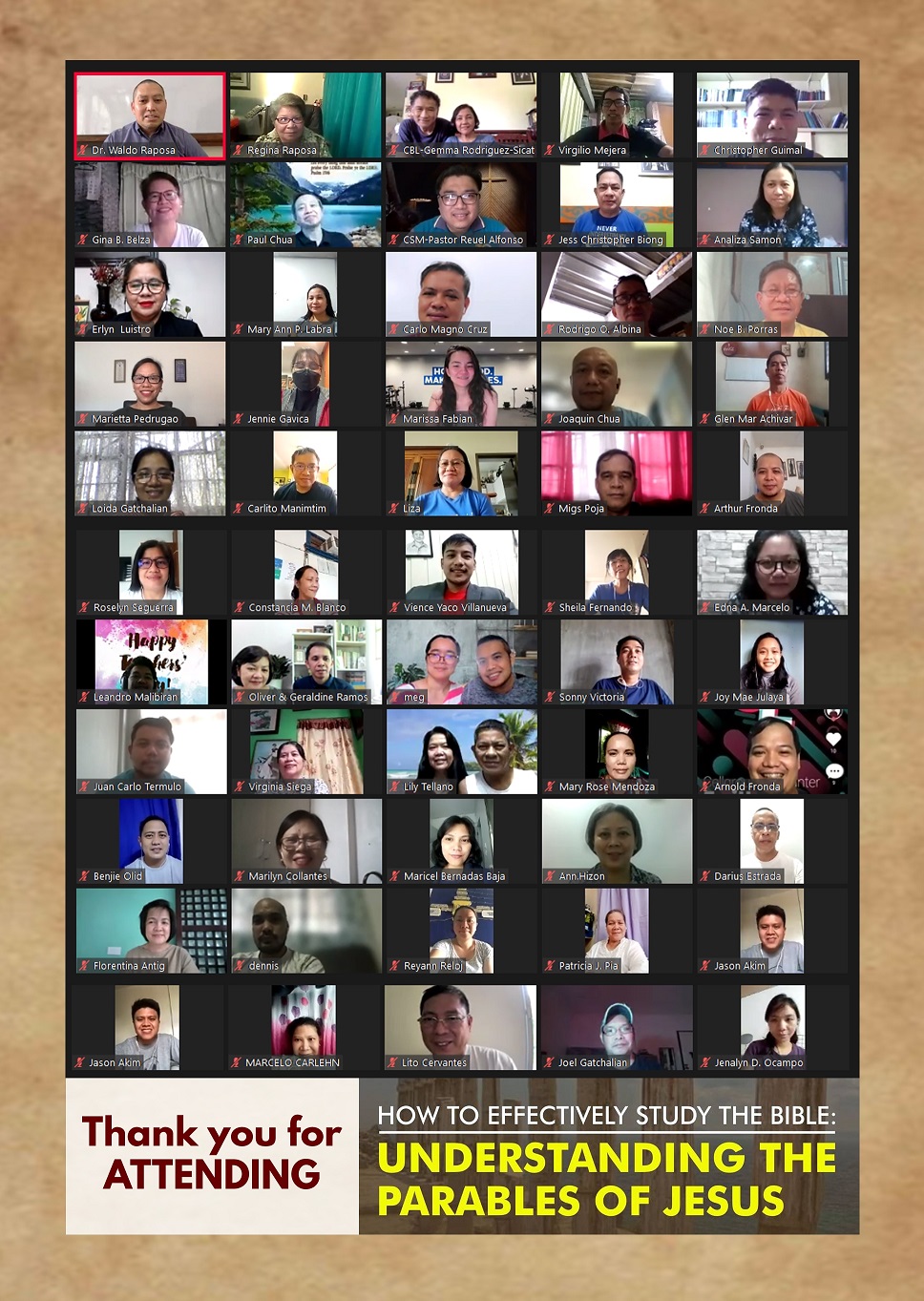CSM’s webinar series sheds light on Understanding the Parables of Jesus
Nov 03, 2021
With the current social emphasis on political correctness, do the parables of Jesus still make sense or are they outdated teachings of a forgotten time? This was the quest for discovery in the latest installment of CSM’s “How to Effectively Study the Bible” webinar series held last October 23, 2021.
Dubbed “Understanding the Parables of Jesus” and led by Dr. Waldo Raposa, professor at the Philippine Baptist Theological Seminary and associate dean at Asia Baptist Graduate Theological seminary, the webinar drew participants from 57 churches from all over the Philippines and even from other countries.
Why did Jesus resort to teaching in parables or stories, compared to other contemporary teachers of his day? Here’s how Dr. Raposa explained it: “What Jesus wants to emphasize in his parables is the kingdom of God. Almost all Jesus’ preaching and teachings revolves about the kingdom of God. Jesus used familiar stories from everyday life to get across his message. The kingdom of God is a concept that is strange to people at that time, so to make it more understandable he used common stories like sowing, fishing, etc. to make it more relatable to his hearers.”
To properly understand the parables, one possible way is to categorize or group the stories that are similar in themes, subject, or structure. Dr. Raposa explained that over the years, different scholars did groups or classifications of the parables. He shared: “What I remembered are these four classifications: 1) The coming and growth of God’s kingdom; 2) The crises that God’s kingdom brings; 3) The means by which to enter God’s kingdom; and 4) Attitudes expected of those who are members of God’s kingdom.” While this classification may help, Dr. Raposa encouraged the participants not to be limited by these categories. “You can expand these classifications according to what you see fit. Just always remember that context means everything,” he added.
The most important aspect of understanding Jesus’ parables, according to Dr. Raposa, is knowing its proper context. He said, “In every interpretation, it is important to always consider the context. When you say context, we are talking about the surrounding verses—the verses that come before and what follows after, but especially with verses that come before that may have a special part to the verse that you are dealing with. When it comes to interpretation, not just biblical interpretation, a word has meaning only within context. If a word stands alone without any context, that word can just mean anything. The meaning of a word can be determined if you will be able to read or see the whole story it was used for.”
For the parables to make sense in our present culture and society, Dr. Raposa then challenged his listeners to apply its biblical truths to the current context. He said, “Contemporize the parable. Contextualize it for your audience. Adapt it to their situation for it to be meaningful.”
The next CSM webinar will happen on November 6, 2021, with the topic “Ministry Planning in the New Normal” at 8:30am to 11:30 am via Zoom. For more details, email us at training@csm-publishing.com or contact us at 0908-8937016.


